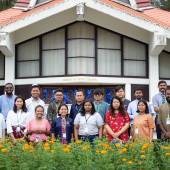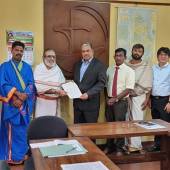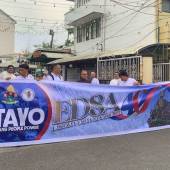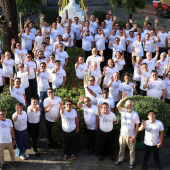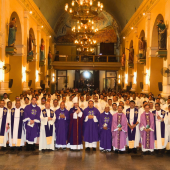Asia falls short on religious freedom, say Christian legal experts
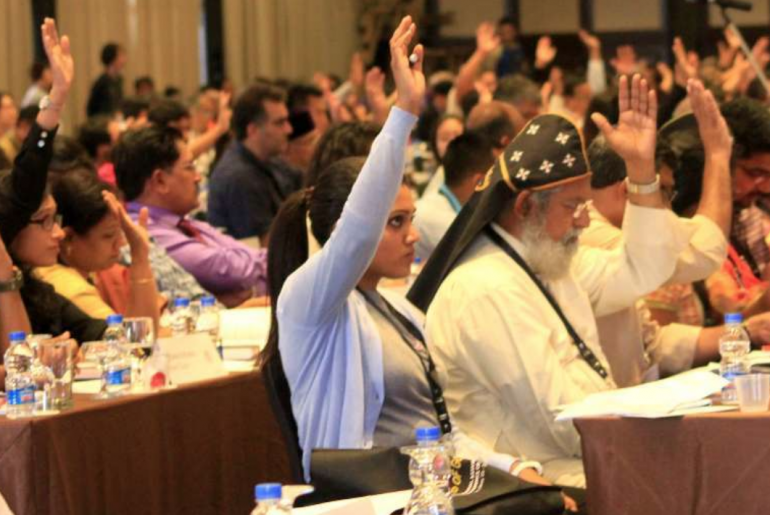
Asian nations are failing to effectively interpret and implement freedom of religion and belief for their citizens despite having constitutional provisions and guarantees, Christian legal experts said during a regional consultation.
“Although a majority of Asian countries have strong constitutional provisions and guarantees to secure their citizens’ freedom of religion and belief, there are severe shortcomings in interpretation and implementation, or in upholding such principles in practice,” observed two legal experts during the Asia Regional Consultation on "Freedom of Religion, Rights of Religious Minorities and Constitutional Guarantees in Asia" organized by the Christian Conference of Asia (CCA).
The five-day consultation from Oct. 3-5 drew 50 participants from various Asian nations.
“In order for freedom of religion and belief to be secure, enhanced and applicable to all human beings, we must comply with constitutional provisions and be consistent with international declarations,” said Eugene Yapp, senior fellow of the Religious Freedom Institute’s Southeast Asia team
“If constitutional guarantees are to be meaningful, there is a need for more contextualized or localized approaches based on ground realities — such as cultural particularities and contingencies of a local nature.”
Yapp, former secretary-general of the Evangelical Alliance of Malaysia, also emphasized the role of churches and missionaries in Asia, stating that churches must seek concrete expression for the flourishing of “diversity of cultures in social engagement and creative dialogue for the well-being of everyone for the common good.”
Yaap said that churches' active engagement will influence and allow public institutions and agencies to be recalibrated for efficient deliveries and adequate protection so that “freedom of religion and belief is then no longer viewed with suspicion, and constitutional guarantees become more meaningful.”
Dr. Faustina Pereira, a lawyer at the Supreme Court of Bangladesh and human rights activist, referred to the example of Bangladesh's constitution and noted that further exploration is needed to put constitutional provisions for freedom of religion into action.
“In our founding documents, what some may see as limiting caveats we see as the opportunity in these articulated and unarticulated spaces within which we can find greater protections and flourish creatively … We can find answers within our constitutions, including negotiated unspoken spaces. This is where we can enact strategic advocacy,” said Pereira, a Catholic.
She recommended actions such as appropriately situating religious freedom within the complex web of competing and complementing freedoms, identifying those freedoms that are most directly under threat (such as freedom of expression, thought, conscience) and exploring critical alliances across freedom movements (such as those combating the shrinking space for civil society, suppression of dissent, maldevelopment, etc.), exercising introspection within our own communities, recognizing sub-minorities within minority communities (those voices that are being left out or left behind) and pairing national platforms and tools (affirmative action, quota representation) with global frameworks.
Yapp proposed the idea of “dialogical engagement” to enhance relationships, build trust and identify common opportunities for solution-making. Such an approach did not insist on one’s own rights but rather identified corresponding duties for a balanced, middle-ground position.
The participants shared their concerns and thoughts about “Freedom of Religion: Rights and Responsibilities” with reflections on the common good and its alignment with the "Great Commission," maligning trends of forceful and aggressive proselytization, and best practices for interfaith fellowship and understanding at the grassroots.
The CCA is a pan-Asian ecumenical Christian forum based in Chiang Mai, Thailand. It strives for the unity of churches in Asia, joint action in mission, Asian contributions to Christian thought and worship, sharing and fellowship among the churches in Asia and beyond, effective Christian responses to the challenges of the changing societies of Asia, relationships with people of other faiths in Asia, human dignity and care for the creation.
Radio Veritas Asia (RVA), a media platform of the Catholic Church, aims to share Christ. RVA started in 1969 as a continental Catholic radio station to serve Asian countries in their respective local language, thus earning the tag “the Voice of Asian Christianity.” Responding to the emerging context, RVA embraced media platforms to connect with the global Asian audience via its 21 language websites and various social media platforms.









